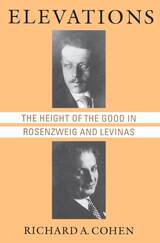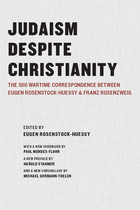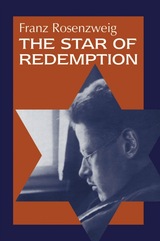
Cohen also explores the ethical philosophy of these two thinkers in relation to Nietzsche, Husserl, Heidegger, Buber, Sartre, and Derrida. The result is one of the most wide-ranging and lucid studies yet written on these crucial figures in philosophy and Jewish thought.




The Star of Redemption is essential reading for anyone interested in understanding religion and philosophy in the twentieth century. Fusing philosophy and theology, the book assigns both Judaism and Christianity distinct but equally important roles in the spiritual structure of the world. Franz Rosenzweig finds in both biblical religions approaches to a comprehension of reality.
The major themes and motifs of The Star—the birth, life, death, and the immortality of the soul; Eastern philosophies and Jewish mysticism; the relationship between God, world and humanity over time; and revelation as the real biblical miracle of faith and path to redemption—resonate meaningfully.

Franz Rosenzweig, one of the century’s great Jewish thinkers, wrote his gem of a book in 1921 as a more accessible précis of his famous Star of Redemption. An elegant introduction to Rosenzweig’s “new thinking,” Understanding the Sick and the Healthy was written for a lay audience and takes the form of an ironic narrative about convalescence. With superb simplicity and beauty, it puts forth an important critique of the nineteenth-century German Idealist philosophical tradition and expresses a powerful vision of Jewish religion. Harvard’s Hilary Putnam provides a new introduction to this classic work for a contemporary audience.
“Today, more than three-quarters of a century after it was written, the critique of philosophy in this book is what makes it of such great interest. Critique of philosophy has been a central theme of twentieth-century philosophy, and many philosophers have attacked some of the targets that Rosenzweig attacked in his little book. Yet this early attack by a profound religious thinker is far more powerful and far more interesting than most.”—From the new Introduction by Hilary Putnam
READERS
Browse our collection.
PUBLISHERS
See BiblioVault's publisher services.
STUDENT SERVICES
Files for college accessibility offices.
UChicago Accessibility Resources
home | accessibility | search | about | contact us
BiblioVault ® 2001 - 2024
The University of Chicago Press









